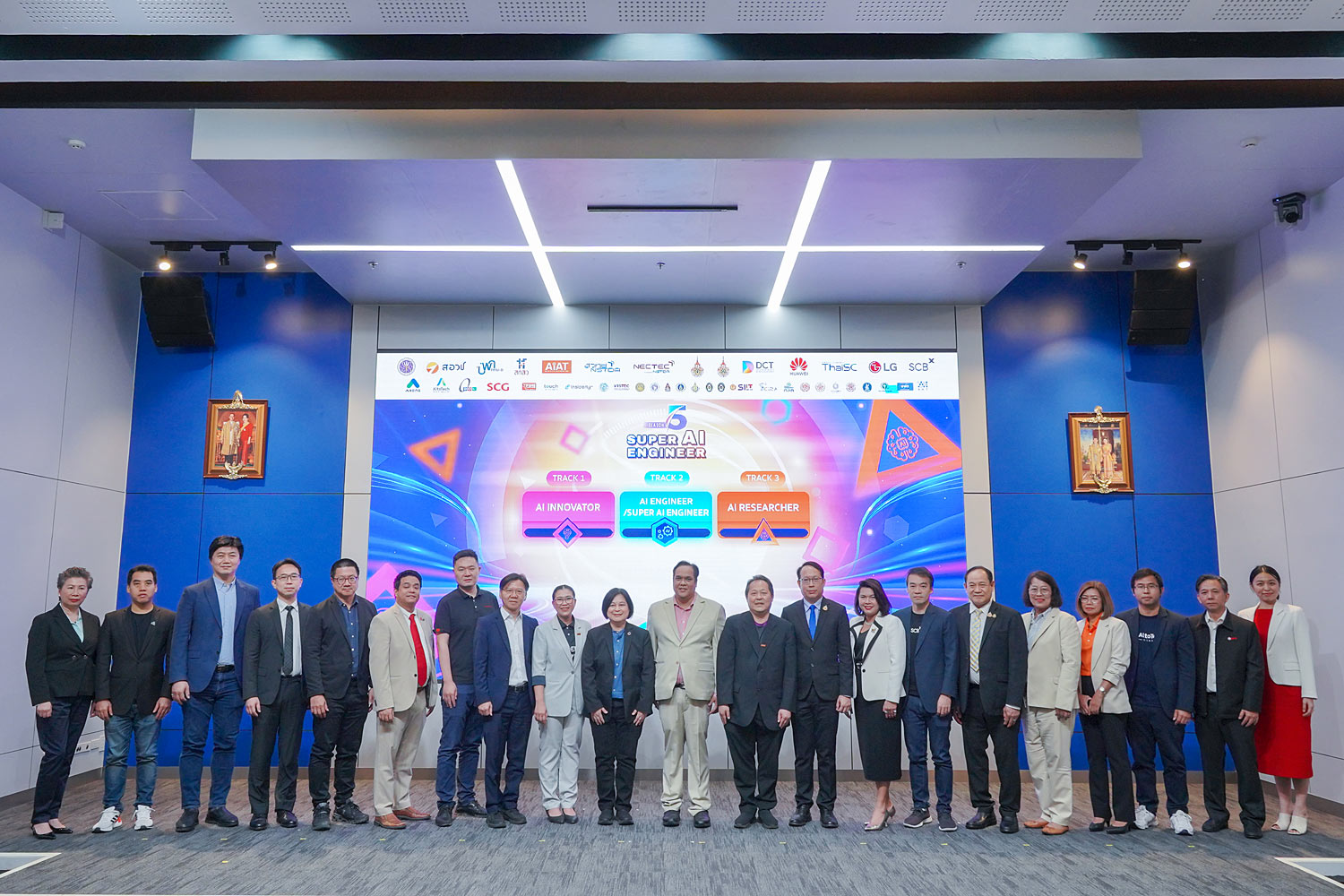
Huawei is promoting its cloud artificial intelligence (AI) growth strategies by offering industry-specific solutions, while collaborating with universities to produce skilled graduates to address the shortage of skilled labour.
The cloud computing market is mature and is becoming a key enabler of the country's digital transformation, while AI is driving the use of cloud service, Chawapol Jariyawiroj, president of Huawei Technologies (Thailand), said at the recent Asia Pacific Cloud AI Forum & Huawei Developer Competition at Chulalongkorn University.
Huawei has three data centres in Thailand and positions itself to offer AI for use cases in industries such as healthcare, finance, manufacturing and retail, said Mr Chawapol.
The company differentiates itself from rivals with its industry-specific applications and innovations, he said.
Earlier Victor Luo, vice-president of Huawei Cloud Thailand, presented two new AI-powered innovations, including CloudPond, allowing enterprises to deploy public cloud services directly at their locations.
The solution supports over 30 industry-leading cloud services, supports local data storage, ensures regulatory compliance and reduces service latency to less than 5 milliseconds.
The other innovation is CodeArts, a cloud-based software development platform powered by Huawei Cloud's Pangu foundation model. It enables developers to generate code, add comments and create test cases automatically.
The innovation has a global reach of more than 10,000 enterprises and 3.5 million developers.
Mr Chawapol said Huawei supports the nation's cloud first policy and AI strategies, key pillars in driving economic growth and advancing the digital economy.
Thailand's cloud first policy mandates that government agencies prioritise using cloud services for IT infrastructure to enhance their efficiency and reduce their costs.
The AI Strategy (2022-27) aims to create an ecosystem that integrates AI across sectors, driving economic growth and improving the quality of life.
"As a company committed to building a thriving ecosystem, we have cultivated nearly 100,000 digital talents in Thailand in the past five years, including nearly 12,000 advanced cloud AI developers," he said.
Through the company's ICT Academy programme, more than 50 universities partner with Huawei to develop talents through competitions, training initiatives, internships and technical mentorships, said Mr Chawapol.
"We aim to inspire more people in Thailand and across the region to explore the possibilities of Cloud AI and unlock new opportunities for growth and innovation," he said.
Chulalongkorn University and Huawei share a commitment to cultivating digital talents, said Prof Wilert Puriwat, president of Chulalongkorn University.
At the competition, several winning teams shared practical cases of Huawei Cloud-based innovation.
For example, one team developed a remote speech therapy enhancement system based on AI to provide more efficient and convenient treatment support for patients with language disorders.
Another team designed an integrated building automation management system to improve the efficiency and safety of building management through intelligent means.
Asst Prof Attawith Sudsang, head of the Department of Computer Engineering at Chulalongkorn University, said over the past two years tech vendors have co-created courseware with universities, catering to high demand for digitally skilled workers.
Dynamic digital disruption, the tech trade war, and environmental, social and governance are three key impacts for the education sector, said Asst Prof Attawith.
The faculty trains foundation skills in the first year that can make its students become software engineers in the first year and enable them to work as interns in the first year with tech companies.
"We have 95 tech companies as partners," he said.
The faculty does not solely teach AI, including tech network, security, cloud system infrastructure and databases in its curriculum to allow students to learn from US and Chinese technology, said Asst Prof Attawith.
The faculty is joining the education sandbox project of the Higher Education, Science, Research and Innovation Ministry, seeking to double the number of faculty students covering bachelor's, master's and doctorate degrees, reaching 1,400 within three years.


